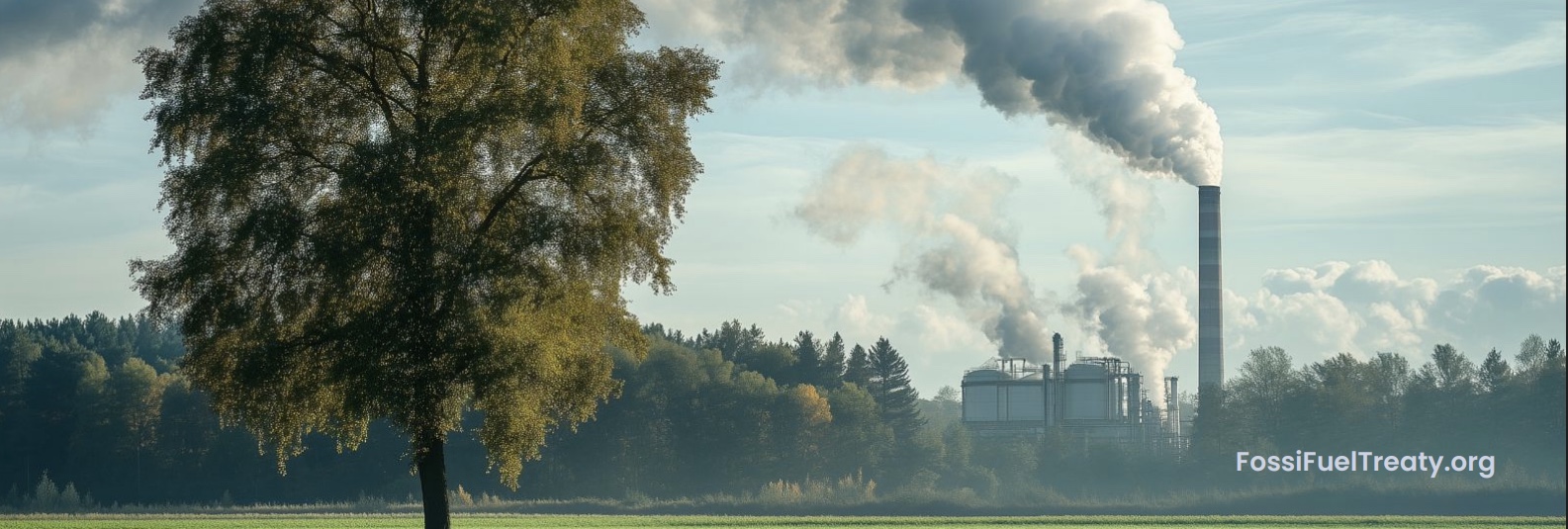African countries are being urged to take a strong stand against fossil fuels at this year’s Africa Climate Week and Africa Climate Summit, which will be held in Addis Ababa, Ethiopia.
The events come at a time when Africa is facing worsening climate impacts, despite being one of the regions that pollutes the least. Many believe this is a key moment for African nations to lead the way in finding real solutions to the climate crisis.
A growing number of voices say that cutting down the use of coal, oil, and gas – the main drivers of global warming – must be at the centre of Africa’s climate plans.
One group making its presence felt during the summit is the Fossil Fuel Non-Proliferation Treaty Initiative. The group wants African countries to join an international push to end new fossil fuel projects and support clean, renewable energy.
So far, 17 countries from the Pacific, Latin America, Southeast Asia, and the Caribbean have joined talks on the treaty. Supporters say the treaty would work alongside the Paris Agreement and help solve the climate crisis more directly.
“This is Africa’s chance to lead by example,” said campaigners from the treaty group. “We must stop false solutions and support a just transition to clean energy that works for all Africans.”
The week kicks off with a special art show titled “All Power to the People – Pan-African Artists’ Pledge”. The exhibition will open on 1 September at Studio 11 Art Gallery in Addis Ababa and run until 9 September.
The event will showcase artwork from across Africa and the diaspora, using creativity to call for climate justice. Organisers say the show highlights the power of art to both reflect the reality of climate change and inspire people to act.
Several important side events will take place on 9 September at the Addis International Convention Centre. These talks aim to bring together government officials, civil society groups, and experts to discuss how Africa can move away from fossil fuels and build a green, fair future.
Event Highlights Include:
-
Beyond Emissions: Addressing the Supply Side of Climate Change (9:30–11:00am): This event will look at how international cooperation – including the proposed Fossil Fuel Treaty – can help stop new fossil fuel production. It is hosted by groups such as Power Shift Africa and Fridays For Future Uganda.
-
Energy for Development: Financing Renewables for a Resilient African Future (11:30–1:00pm): This session will focus on how Africa can fund its switch to renewable energy and ensure energy access for all. Civil society, experts, and community leaders will take part.
-
Transitioning Away from Fossil Fuels (12:00–1:30pm): This discussion will explore how countries like Nigeria, Angola, and Kenya can shift their economies away from fossil fuels. Experts will share real-life examples of what’s working and what still needs to be done.
The outcomes of this summit will help shape Africa’s position at COP30, the next major global climate meeting. Many hope African countries will use this moment to send a strong message to the world: the time to act is now.
Campaigners from the Fossil Fuel Treaty Initiative say the path forward must include ending fossil fuel use and building clean, fair energy systems that benefit people across the continent.








